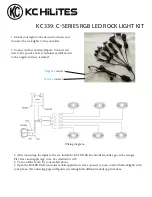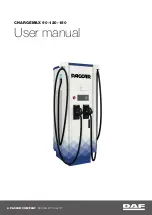
172
Starting and driving
Engine block heater
3
The following are just some of the benefits
to the car and the environment of using an
engine block heater:
• Lower fuel consumption.
• Exhaust emissions substantially reduced
over short runs.
• Reduced wear on the engine.
• Inside of car warms up faster.
The engine heater is effective at outside
temperatures up to 58–68°F (+15–20
°
C).
The warmer it is outside, the shorter the time
the engine heater needs to be connected.
Longer than 1.5 hours is unnecessary.
If the car is equipped with a removable,
electrical cabin heater that is not in use, this
should be stored in the luggage compart-
ment.
Driving in cold weather
Before starting a journey in cold weather
you should check the following:
• That the wiper blades have not become
frozen to the windshield/glass.
• Brush any snow away from the air intake
for the heater system (opening between
hood and windshield).
• It may be advisable to lubricate the
door-lock cylinder (use molybdenum
disulphide, MoS
2
) to prevent its freezing.
If the lock has frozen, take care not to
break the key (or use the remote control)
– heat it first or spray it with de-icer.
• Periodically during the winter, add gaso-
line
anti-freeze to the fuel to dispel any
condensation in the fuel tank which could
freeze and cause problems in the system.
Keep the tank well filled to reduce the risk
of condensation forming.
If the car is parked outside in freezing
weather, fuel additives (gasoline
anti-freeze) will not do any good as it
cannot remove water that has already
frozen. Park the car in a warm place so
that any ice that may have built up melts,
then add gasoline
anti-freeze when filling
up the tank. Condensation is caused by
changes in the outdoor temperature or by
the car being parked alternately in a
garage and outside.
• It is particularly important when the roads
are slippery that the brakes and tires be in
good condition.
• Check the anti-freeze in the engine cool-
ant, see page 193.
The car´s trip computer will warn you when
there is a risk of slippery conditions. For fur-
ther information on this function, see
page 68.
The car is equipped with tires designed to
provide optimum grip on both wet and dry
roads, although this has been achieved at
the expense of somewhat reduced grip on
snow and ice. For regular driving on snow
and ice, we therefore recommend that
winter (snow) tires be fitted.
Winter (snow) tires, particularly studded
tires (where use is legally permitted), gener-
ally make driving safer on snow and ice.
Acquaint yourself with the legal provi-
sions governing the use of different
types of winter tires and snow chains.
Studded tires are not allowed in some
countries.
95_US_MY09.book Page 172 Tuesday, April 15, 2008 11:03 AM
Содержание 9-5
Страница 10: ...10 This page has been left blank 95_US_MY09 book Page 10 Tuesday April 15 2008 11 03 AM...
Страница 42: ...42 Safety This page has been left empty 95_US_MY09 book Page 42 Tuesday April 15 2008 11 03 AM...
Страница 56: ...56 Security This page has been left blank 95_US_MY09 book Page 56 Tuesday April 15 2008 11 03 AM...
Страница 266: ...266 Specifications This page has been left blank 95_US_MY09 book Page 266 Tuesday April 15 2008 11 03 AM...
Страница 272: ...272 Notes Notes 95_US_MY09 book Page 272 Tuesday April 15 2008 11 03 AM...
















































